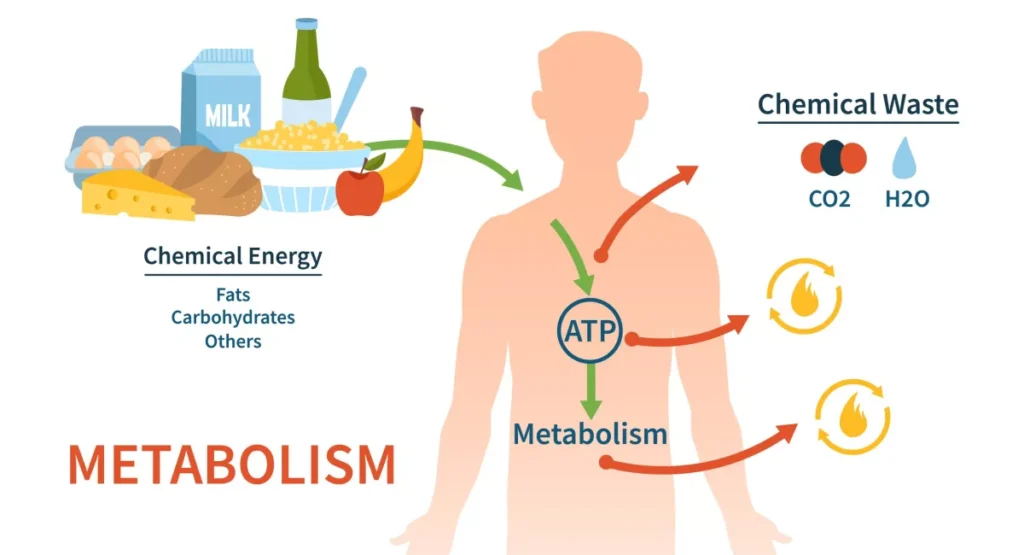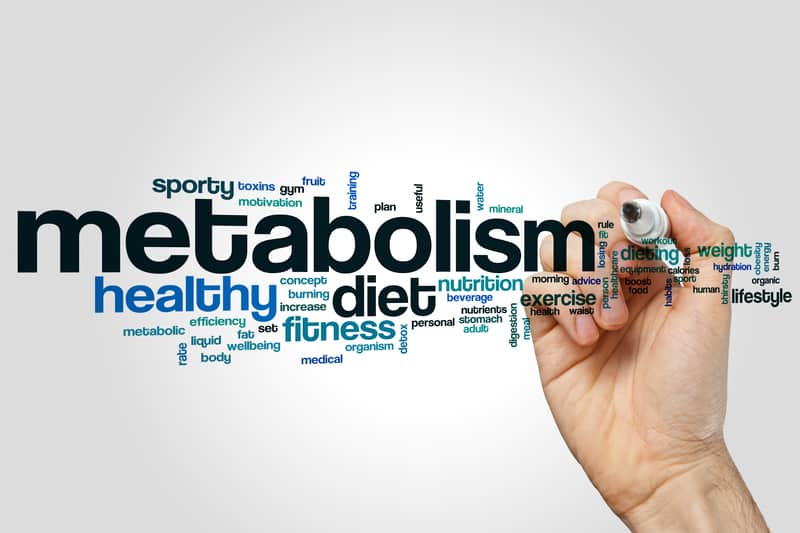Metabolism and Aging: What You Need to Know
Aging is an inevitable process that every human being goes through. As we age, we experience changes in our body’s functions, including our metabolism. In this article, we will explore how metabolism changes with age and how it impacts the aging process. We will also discuss strategies to improve metabolism and slow down aging.
What is Metabolism?
Metabolism is the process by which our bodies convert food into energy that is needed to carry out essential functions. It includes all the chemical reactions that occur in our body to sustain life. These reactions are responsible for breaking down food, synthesizing new molecules, and eliminating waste products.
Metabolism has two components: catabolism and anabolism. Breaking down molecules often produces energy. The breakdown of one molecule is often coupled with the synthesis of another, and this other synthesized molecule is often adenosine triphosphate, or ATP. Catabolism is the breaking down of molecules to provide energy. Anabolism is the building of molecules. These two processes combine to give metabolism, which comprises the reactions in biological systems.

How does Metabolism Change with Age?
As we age, our metabolism slows down, which means our body requires fewer calories to carry out essential functions. This decrease in metabolism is due to several factors, including changes in our body composition, hormonal changes, and a decrease in physical activity. This slowing down of metabolism can lead to weight gain, which is a common problem among older adults.
Factors that Affect Metabolism and Aging
Several factors can affect metabolism and aging, including genetics, lifestyle, diet, and physical activity.
a. Genetics
Genetics play a significant role in our metabolism and aging. The genes we inherit from our parents can affect our metabolic rate and the rate at which we age. Some people have a faster metabolism, which means they burn calories at a faster rate than others. This can be attributed to their genes.
b. Lifestyle
Our lifestyle habits can also impact our metabolism and aging. Poor lifestyle choices such as smoking, excessive alcohol consumption, and lack of physical activity can accelerate the aging process and slow down our metabolism.
c. Diet
Our diet plays a crucial role in our metabolism and aging. Consuming a diet high in processed foods, sugar, and unhealthy fats can lead to weight gain and a slower metabolism. On the other hand, a balanced and nutritious diet can boost our metabolism and slow down the aging process.
d. Physical Activity
Physical activity is essential for maintaining a healthy metabolism and slowing down the aging process. Regular exercise can help build muscle mass, which can boost metabolism and burn calories even when we are at rest.
The Impact of Metabolism on Aging
Metabolism plays a significant role in the aging process. As our metabolism slows down, we are at a higher risk of developing chronic diseases such as diabetes, heart disease, and obesity. A slower metabolism also makes it harder for our body to repair and regenerate cells, which can lead to premature aging.
Strategies to Improve Metabolism and Slow Down Aging
a. Exercise Regularly
One of the best ways to improve metabolism and slow down aging is to exercise regularly. Aim for at least 30 minutes of moderate-intensity exercise, such as brisk walking, cycling, or swimming, 5 days a week would be best if you could manage.
b. Eat a Balanced and Nutritious Diet
Eating a balanced and nutritious diet can also improve metabolism and slow down aging. Include plenty of fruits, vegetables, whole grains in your diet, and limit your intake of processed foods, sugar and unhealthy fats.

c. Get Enough Sleep
Getting enough sleep is essential for maintaining a healthy metabolism and slowing down the aging process. Aim for at least 7-8 hours of sleep every night. Lack of sleep can disrupt hormones that regulate appetite and metabolism, which can lead to weight gain and a slower metabolism.
d. Manage Stress
Chronic stress can have a negative impact on our metabolism and accelerate the aging process. Managing stress through activities such as meditation, yoga, or deep breathing exercises can help improve metabolism and slow down aging.
e. Stay Hydrated
Drinking enough water is crucial for maintaining a healthy metabolism and slowing down the aging process. How many glasses of water you should drink every day depends on various factors such as your age, weight, activity level, climate. Is it 8 or 20 glasses, that’s something you can only decide. Watch the color of your urine and adjust your water intake according to that. The color should be yellowish, and not dark yellow, or to bright. Dehydration can slow down our metabolism and make it harder for our body to perform essential functions.
Conclusion
In conclusion, metabolism and aging are closely related. As we age, our metabolism slows down, which can lead to weight gain, chronic diseases, and premature aging. However, by adopting a healthy lifestyle that includes regular exercise, a balanced diet, enough sleep, stress management, and staying hydrated, we can improve our metabolism and slow down the aging process.
FAQs
Q1. Can you speed up your metabolism as you age?
A. While our metabolism naturally slows down as we age, certain lifestyle changes such as regular exercise, a balanced diet, and stress management can help improve metabolism.
Q2. How does stress affect metabolism?
A. Chronic stress can disrupt hormones that regulate appetite and metabolism, which can lead to weight gain and a slower metabolism.
Q3. Does drinking water help with metabolism?
A. Yes, drinking enough water is crucial for maintaining a healthy metabolism and slowing down the aging process.
Q4. How does diet affect metabolism?
A. A balanced and nutritious diet can boost our metabolism and slow down the aging process. Consuming a diet high in processed foods, sugar, and unhealthy fats can lead to weight gain and a slower metabolism.
Q5. Is it too late to improve metabolism if you’re already in your 50s or 60s?
A. No, it’s never too late to adopt healthy lifestyle habits that can improve metabolism and slow down the aging process, regardless of your age.







